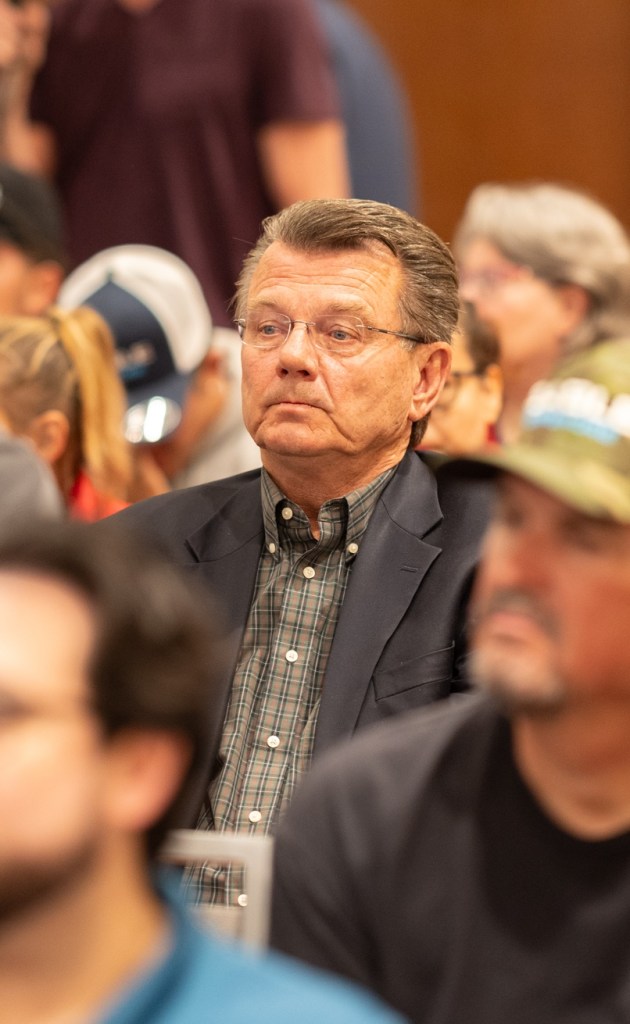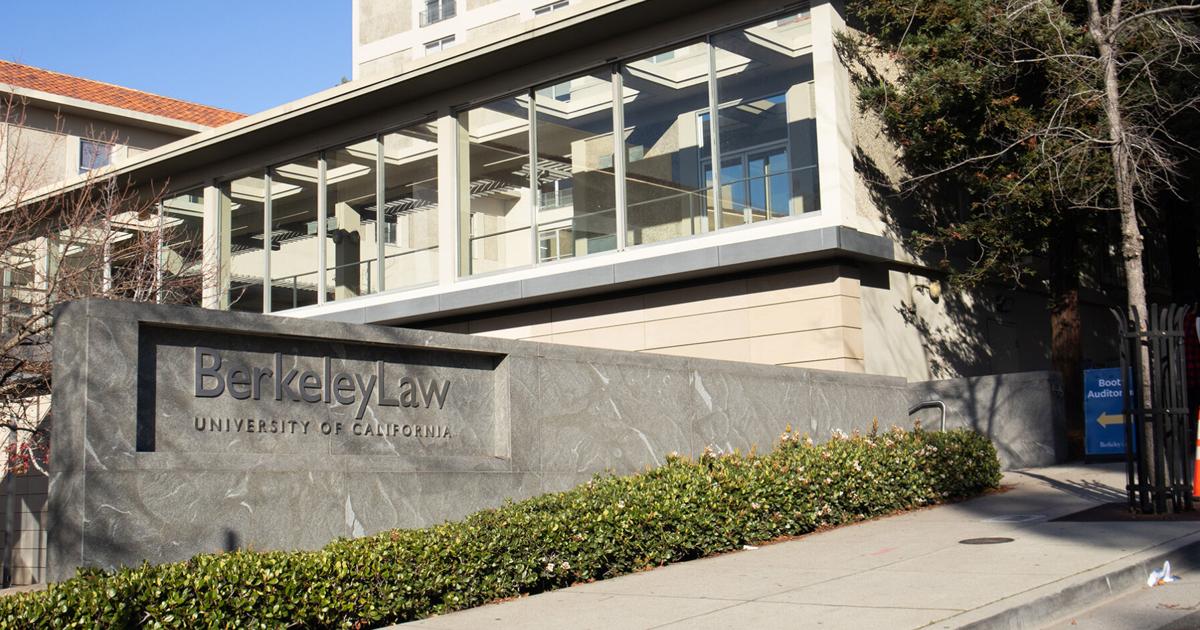
At least on paper, this was a really bad week for Sable Offshore in its pell-mell bid to resume oil production at its Las Flores Canyon oil facility up the Gaviota Coast. This Wednesday, Judge Thomas Anderle granted the Coastal Commission’s demand for a temporary restraining order mandating that Sable cease any further pipeline repair work Sable still needs to do until the matter can be thoroughly adjudicated.
Five days earlier, on May 23, the chair of the California State Lands Commission, Lt. Governor Eleni Kounalakis, raked Sable over the coals in a letter for issuing a press release last Monday announcing that it had resumed offshore oil production in Santa Barbara County when in fact it had not. Kounalakis all but accused the company of lying to impress potential investors by conflating offshore well testing activities that were required by a federal regulatory agency with the restart of operations. Further she blistered the company for failing to inform the State Lands Commission that this work was taking place, stating that such notification is not a courtesy but a requirement.
“Sable’s failure to clearly and timely communicate these activities to the Commission undermines the trust of Sable’s motives, demonstrates a lack of understanding of the significant concerns held by many regarding the resumption of activities, and raises serious questions about Sable’s willingness to be a transparent operator,” she wrote.

Later in the same letter, Kounalakis said Sable’s attitude could “jeopardize the status of Sable’s holdover lease.” Currently, Sable is leasing offshore rights in state waters off the coast for transporting oil from the platforms in further offshore federal waters, but those leases are on a month-to-month basis.
While all this sounds dramatic, it’s not clear what, if anything, any of this actually means. For example, attorneys for Sable notified Judge Anderle in court this morning that they’d recently completed all the necessary repair work on the 122 miles of pipeline it owns and hopes to soon win approval to restart from the Office of the State Fire Marshal. If that’s actually the case, then presumably, a temporary restraining order would not hold up any of the repair work the company has been working so hard to complete.
Colloquially put, this might be the classic case of locking the barn doors after the horses are out. Even so, attorneys for Sable spent about 25 minutes in court listing all the ways such a temporary restraining order might cause undue economic hardship for the company and its many pipeline workers who might otherwise find themselves unemployed.
Sable Vice President of Environmental and Governmental Affairs Steve Rusch stated, “Today’s court ruling was about the maintenance and repair of the Las Flores Pipeline System. As of this morning, that work, including all hydrotesting of the lines, has been successfully completed.” Rusch — who previously worked for ExxonMobil, the prior owner of the plant — added, “We look forward to overturning today’s decision, though it has no bearing on Sable’s plans to recommence oil sales by July. Sable will continue to aggressively defend our vested rights to pursue low carbon California oil and natural gas sorely needed to stabilize supply and lower gasoline prices.”

Linda Krop, attorney for the Environmental Defense Center and perhaps Sable’s most relentless antagonist, wondered why Sable spent so much time detailing all the ways the company might suffer if the temporary restraining order was granted if, in fact, all the work had been done.
“I think the ruling in this case might be a lot more impactful than it appears,” she said. “The judge didn’t merely rule that there was a basis to hold a hearing on a full-fledged restraining order; he actually ruled on the merits of the case. He determined that Sable violated the California Coastal Act. That’s a very big deal.”Or maybe there are other ramifications for the judge’s ruling. Anderle’s ruling certainly appears to buttress the legal position of the California Coastal Commission, which voted to impose an $18 million fine on Sable in April for continuing to work on pipeline repairs despite the cease-and-desist orders issued by the Coastal Commission director ordering such work to stop. The Coastal Commission has argued that Sable’s repair work constituted “development” under the state’s Coastal Act, and as such, required a Coastal Development Permit from the commission. Sable has insisted that the work being done did not qualify as development, but instead as repairs. And as repair work, the company insisted, no Coastal Development Permits were required. Further Sable argued that on February 14, county energy planners issued a written statement asserting that Sable’s work was allowed by the initial permit issued for the Las Flores Unit oil development back in 1987.
Anderle wasn’t buying any of that. In his ruling, the judge swatted away arguments that Santa Barbara County had issued permits years ago that covered Sable’s work today. “The existing CDPs [Coastal Development Permits] upon which Sable relies are not presented to the court; the argument and County’s letter discuss these permits but do not provide them directly. The court therefore cannot directly analyze the issue whether existing CDPs are sufficient to authorize the work at issue.”
As for the Coastal Commission’s jurisdiction to require Coastal Development Permits — hotly disputed by Sable — the judge expressed absolutely no ambivalence. He ruled that the repair work undertaken by the company — involving intensive earth moving, excavation, repair, grading, and large-scale earth moving machinery and crews — clearly qualified as development under the terms of the state Coastal Act and, just as clearly, required a Coastal Development Permit.
“These activities fall squarely within the definition of ‘development’ in the Coastal Act,” he ruled, “and this point is not meaningfully disputed by Sable.”
What Judge Anderle meant by the word “meaningfully” he did not spell out. Certainly, Sable has contested this interpretation emphatically, stubbornly, and defiantly throughout its long and protracted showdown with the California Coastal Commission.
Anderle’s ruling comes many weeks after he initially declined to issue the temporary restraining order then being sought by attorneys from California Attorney General Rob Bonta’s office. At that hearing, Anderle — famous for never reversing his tentative rulings — did just that, at least long enough to give himself time to mull over some last-minute, late-night legal filings submitted by Sable’s attorneys the night before. When Anderle agreed to reconvene on May 28 — this Wednesday — it was then clear to everyone in the courtroom that much, if not all, of Sable’s pipeline repair work would be completed. Based on what Sable’s attorney said in court Wednesday morning, that, it turns out, is what appears to have transpired.
Still, the ruling might amount to a significant victory for the California Coastal Commission in its festering dispute with Sable. Given that Sable needs the green light from not just one but eight state regulatory agencies to secure approval to restart the oil and gas operations it purchased two years ago from Exxon, Anderle’s ruling adds starch and spine to arguments made by the Coastal Commission, an agency held in the dim favor by many in state government and certainly by the Governor.The key agency calling the shots on Sable’s re-start aspirations is the Office of the State Fire Marshal. At a recent public meeting held at La Cumbre Junior High Schoolthe Fire Marshall stated he would not make any decision until all outstanding regulatory issues with all the pertinent state agencies had been resolved. Those remarks, however, carry no legal weight, and are subject to a myriad of after-the-fact interpretations.




